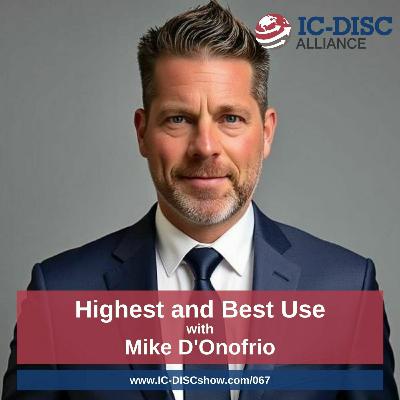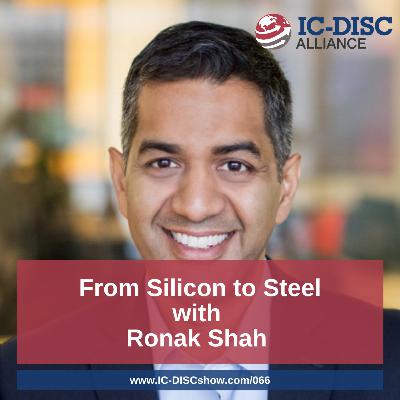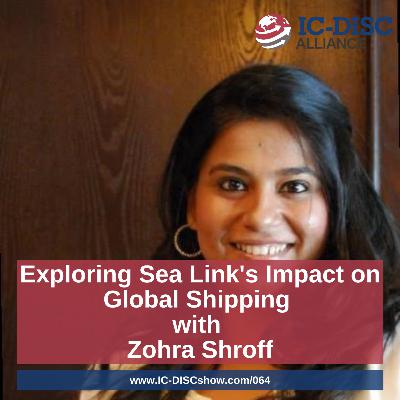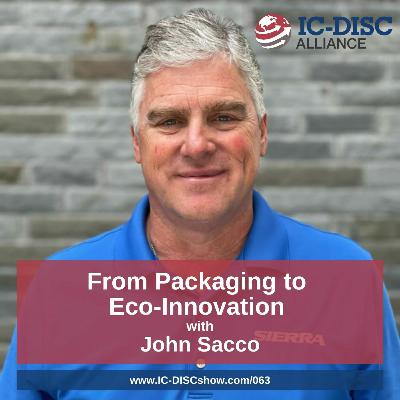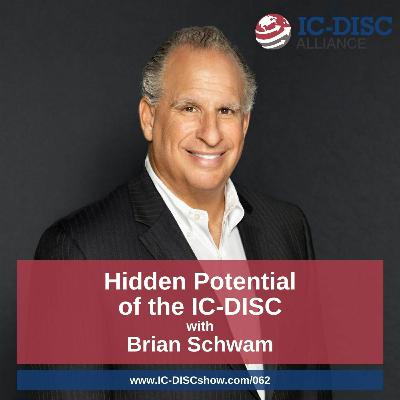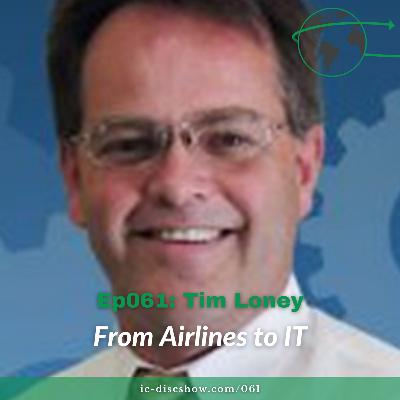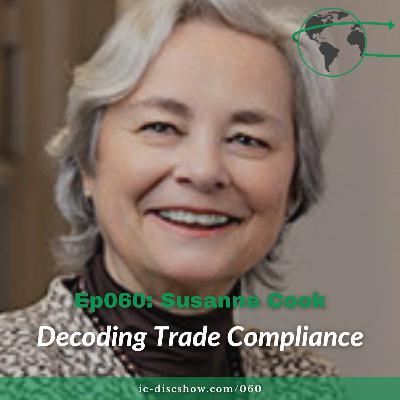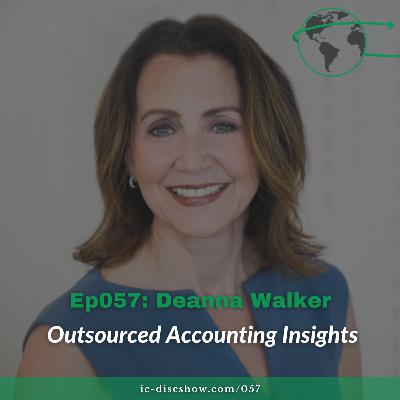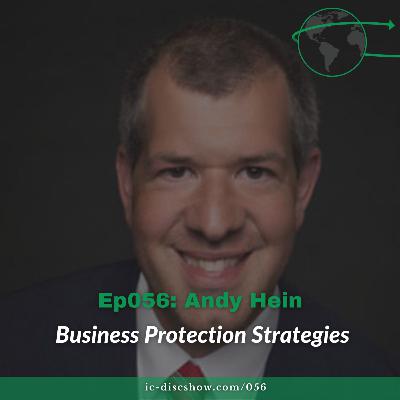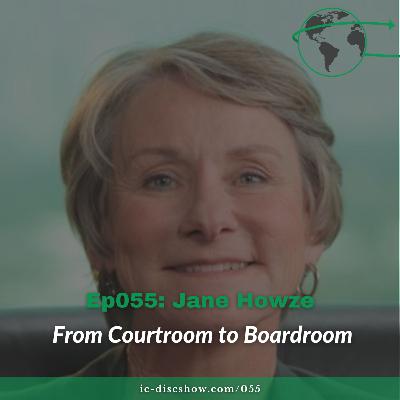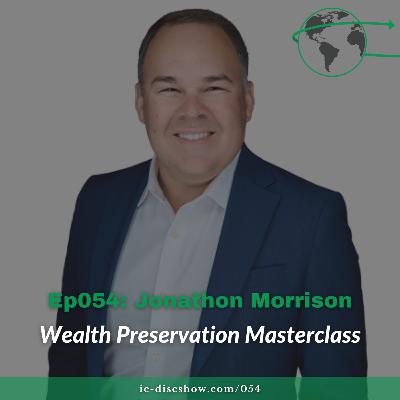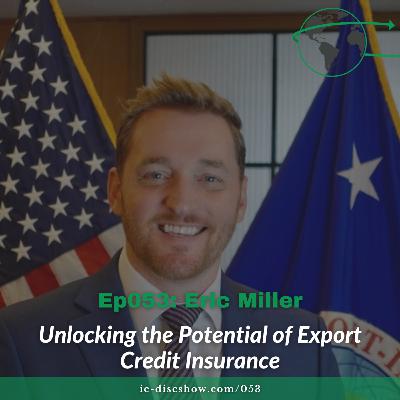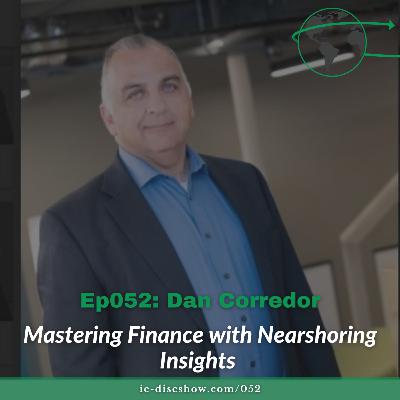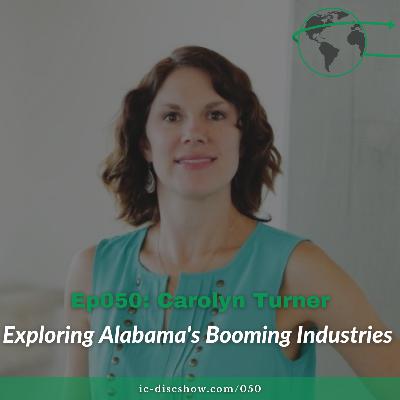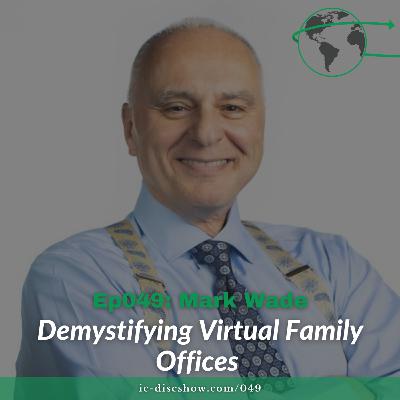Ep067: Highest and Best Use with Mike D'Onofrio
Description
Every business transaction has hidden tax opportunities waiting to be discovered, if you know where to look.
This week on the IC-DISC podcast, I spoke with Mike D'Onofrio from Engineered Tax Services, who's spent 17 years helping business owners maximize their tax strategies through engineering-based specialty tax services.
Mike joined ETS after working in corporate M&A and private equity, where he first recognized the critical need for specialized tax expertise during business transitions, and what struck me about Mike's approach is how his firm combines professional engineering expertise with tax strategy to deliver comprehensive solutions.
They handle everything from cost segregation studies and energy incentives to insurance optimization, processing hundreds of cost segregation studies weekly across every property type imaginable.
Mike's philosophy centers on what he calls "HABU" - highest and best use - focusing on their core expertise while partnering with specialists like us for complementary strategies that create immediate opportunities for businesses to improve cash flow.
The conversation reinforced something I've noticed across successful advisory relationships: the best results come from specialists who stay in their lane while building collaborative teams. Mike's emphasis on maintaining human intelligence alongside technology adoption resonated with my own experience that relationships still drive business success.
<iframe width="560" height="315" src="https://www.youtube.com/embed/z25PRoeEgug?si=ewNzNB367jj8Ui-K" title="YouTube video player" frameborder="0" allow="accelerometer; autoplay; clipboard-write; encrypted-media; gyroscope; picture-in-picture; web-share" referrerpolicy="strict-origin-when-cross-origin" allowfullscreen></iframe>
SHOW HIGHLIGHTS
- ETS processes hundreds of cost segregation studies weekly, from single-family rentals to NFL stadiums, proving tax strategies scale across all property types.
- The recent bonus depreciation bill plus R&D tax credit enhancements now allow 100% first-year expense capture, creating immediate cash flow opportunities.
- Mike's "HABU" principle (Highest And Best Use) drives their decision to stay specialized rather than compete with partners in overlapping services.
- Engineering expertise combined with tax strategy creates unique value—ETS knows roof types, electrical systems, and construction costs that insurance carriers demand.
- After recognizing insurance as clients' second biggest pain point after taxes, ETS launched a complementary insurance division leveraging existing property data.
- Mike advises his 25-year-old self to surround himself with people much smarter, crediting uncomfortable situations with experts as his greatest learning opportunities.
Contact Details
LinkedIn - Mike D'Onofrio
LINKS
TRANSCRIPT
(AI transcript provided as supporting material and may contain errors)
Dave: Good morning, Mike. Welcome to the podcast.
Mike: Good morning, Dave. Great to be here with you today. Definitely.
Dave: So where are you located at the moment? What part of the world are you in?
Mike: Yeah, well, I'm in my home base today in Charlotte, North Carolina.
Dave: Okay.
Mike: Yeah. I've always liked Charlotte, a pretty part of the country. Charlotte's a beautiful place, man. I grew up in Cleveland, Ohio. Great school, high school, college, so I know the Midwest and I still love Cleveland, of course, a Browns fan and a Indians guardians fan and Cavs. But moved to South Florida right after that, right after college and was living in Fort Lauderdale and West Palm Beach, and we're still based there. Our corporate acres is there, but my wife and I had originally met in Charlotte, and we love the seasons. I love the ability to, I see those mountains in your background. I love the ability, we don't have the same type of mountains as you do, but love getting out to the Blue Ridge and Smoky Mountains, seeing the fall, the leaves, and can get to the beach, can drive down to Wilmington or Charleston in a couple hours. So we're right in the middle. We're bus to be here and have the
Dave: Options. Yeah, it's a great location. You have four seasons and a slightly milder winter than Cleveland,
Mike: That's for sure. It seems like winters have softened up a little bit in Cleveland, but man, I remember the mornings going out to the bus when I was a little kid with snow piled up over my head and the drifts up on the side of the house. I'll never forget those days. That was awesome. That was a real winter. But now in Charlotte, if we get a dusting of snow or a little bit of ice, it's usually gone by noon.
Dave: Yeah. I was born and spent the first 13 years of my life in northwest Iowa and was the oldest of two boys. So I remember having to get up an hour early to go shovel the driveway just so mom and dad could get to work in that. So yeah, my saying is the worst Texas summer is still better than the best Northern Winter is my theory.
Mike: You got it, man. High five to those of us that have shoveled snow driveways, walkways, figured out a snowblower with the chains on the wheels and all that fun stuff that comes with winter.
Dave: So by some people's interpretation, we come from the same place because I've discovered people not from the Midwest, they think Ohio, Iowa, and Idaho are all the same place.
Mike: Yeah,
Dave: They're just all somewhere up there. Yes. It's up
Mike: Somewhere up there in the Midwest. Folks like myself grew up in Ohio and Cleveland and Detroit and Chicago. I mean, definitely they think that's the heart of the Midwest, but they forget about the Midwest. Goes pretty far west. Right.
Dave: It does. All the way to the mountains. So, well, let's get into it. So when did you join engineered tax services?
Mike: Wow, it's been a big part of my life. Exciting journey. Like I said, after college I moved down to South Florida and my background was in more corporate m and a private equity working on the finance side of things in transactions, in private equity back in the day, they would call it kind of strategic intermediary work where we would either work on the buy side or sell side with the client. So I worked with a lot of clients and business owners that were maybe interested in transitioning out of their business. Maybe they were a food manufacturer or distributor. And interestingly enough, one of my mentors in life, his name is Bruce. Bruce was one of the first international CEOs with McDonald's corporation. Oh, really? Yeah, one of Ray Croc's, first five or six right hand key people. Before McDonald's had any international business, the first place that they went outside the US was to Latin America and the Caribbean.
And I met Bruce in South Florida my early career, and we really saw an opportunity together, old school style, to go through his Rolodex and be like, man, I have a lot of relationships within the McDonald's and the finance ecosystem. So we started working with many different company owners, like I said, distributors, producers of different things, and we had some great success. And along the way I saw that there was really a need to understand specialty tax credit and incentives and strategies depending on who the client was, whether it was the seller of a company or a property or buyer of that was really to dig into the details of, Hey, what's the best way to make this transaction as tax efficient as possible? Tax was always the first pain point, either from the seller's point of view, maybe there was a big potential cap gain situation, how to structure that deal or from the buyer or investor's point of view, how to maybe capture some additional credits and incentives that they hadn't thought about, like research and development tax credits, or maybe there was a big piece of real estate or pr

